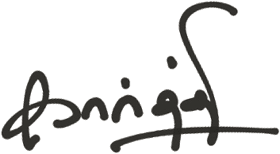Apr 30, 2025
Kinds of Logic
The engineer in me felt at home in logic. Rationality was my compass. Equations, proofs, frameworks—when my thinking stayed within those boundaries, I felt safe. I would almost retaliate when it wandered into the murky waters of the illogical. If something couldn’t be modeled or proved, I dismissed it as noise.
But then the designer in me showed up. And it had questions that logic couldn’t answer.
Design invited me into a different kind of logic—one grounded not in mathematics but in the messiness of the human experience. I began to study cognition, behavior, physiology, psychology—fields that made no claims of being clean or precise, but carried a deeper truth. There was still logic—only now, it was physio-logical. Psycho-logical. And, occasionally, even philo-sophical.
Systems design opened my eyes. Biases weren’t errors—they were heuristics shaped by survival. Fallacies weren’t failures—they were byproducts of our limited processing. There was a logic in how we worked, even when it didn’t look like logic at all.
We often think of logic as a rigid structure. A math-like order. But there are other forms: the quantum logic of uncertainty, the emotional logic of grief, the social logic behind betrayal, ghosting, and power games. These aren’t random—they follow patterns, too subtle to be caught in code, yet present enough to be felt.
Once you start seeing this kind of logic, your perception shifts. You’re no longer a victim of behavior—you become a student of it. The pain doesn’t go away, but the confusion does. “Aha,” you say, “there’s a model here.”
Understanding this form of logic demands a deeper kind of intelligence. A willingness to look inward and around. To study the human condition not with judgment but with curiosity. This, too, is logic—just not the kind we were trained for.

